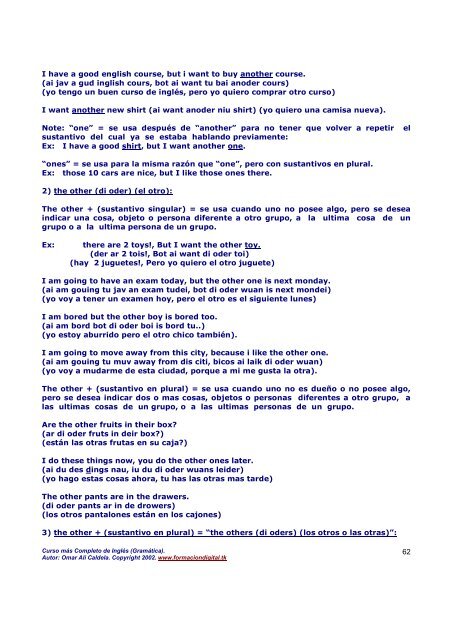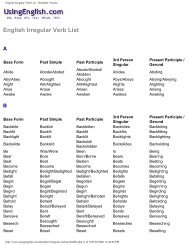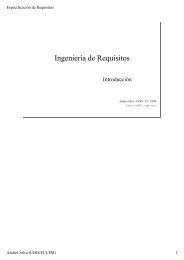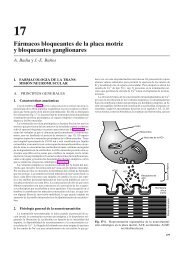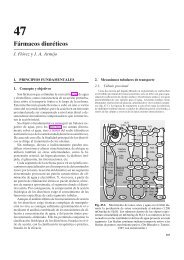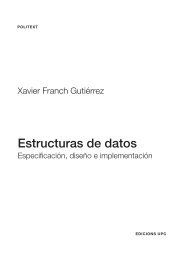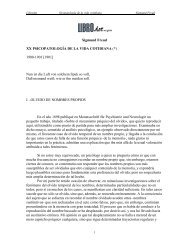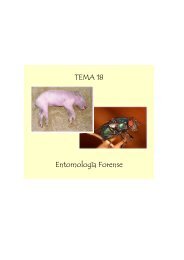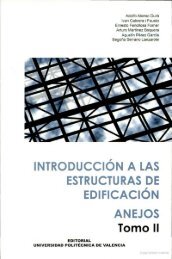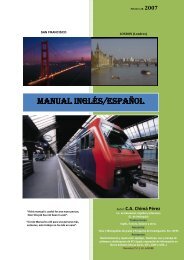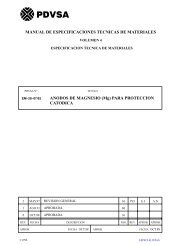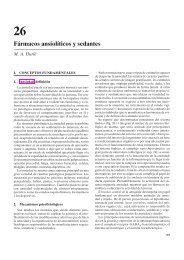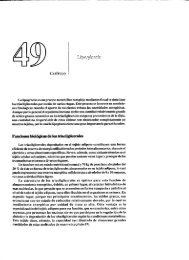EL CURSO MAS COMPLETO DE INGLES .pdf - sisman
EL CURSO MAS COMPLETO DE INGLES .pdf - sisman
EL CURSO MAS COMPLETO DE INGLES .pdf - sisman
You also want an ePaper? Increase the reach of your titles
YUMPU automatically turns print PDFs into web optimized ePapers that Google loves.
I have a good english course, but i want to buy another course.<br />
(ai jav a gud inglish cours, bot ai want tu bai anoder cours)<br />
(yo tengo un buen curso de inglés, pero yo quiero comprar otro curso)<br />
I want another new shirt (ai want anoder niu shirt) (yo quiero una camisa nueva).<br />
Note: “one” = se usa después de “another” para no tener que volver a repetir el<br />
sustantivo del cual ya se estaba hablando previamente:<br />
Ex: I have a good shirt, but I want another one.<br />
“ones” = se usa para la misma razón que “one”, pero con sustantivos en plural.<br />
Ex: those 10 cars are nice, but I like those ones there.<br />
2) the other (di oder) (el otro):<br />
The other + (sustantivo singular) = se usa cuando uno no posee algo, pero se desea<br />
indicar una cosa, objeto o persona diferente a otro grupo, a la ultima cosa de un<br />
grupo o a la ultima persona de un grupo.<br />
Ex: there are 2 toys!, But I want the other toy.<br />
(der ar 2 tois!, Bot ai want di oder toi)<br />
(hay 2 juguetes!, Pero yo quiero el otro juguete)<br />
I am going to have an exam today, but the other one is next monday.<br />
(ai am gouing tu jav an exam tudei, bot di oder wuan is next mondei)<br />
(yo voy a tener un examen hoy, pero el otro es el siguiente lunes)<br />
I am bored but the other boy is bored too.<br />
(ai am bord bot di oder boi is bord tu..)<br />
(yo estoy aburrido pero el otro chico también).<br />
I am going to move away from this city, because i like the other one.<br />
(ai am gouing tu muv away from dis citi, bicos ai laik di oder wuan)<br />
(yo voy a mudarme de esta ciudad, porque a mi me gusta la otra).<br />
The other + (sustantivo en plural) = se usa cuando uno no es dueño o no posee algo,<br />
pero se desea indicar dos o mas cosas, objetos o personas diferentes a otro grupo, a<br />
las ultimas cosas de un grupo, o a las ultimas personas de un grupo.<br />
Are the other fruits in their box?<br />
(ar di oder fruts in deir box?)<br />
(están las otras frutas en su caja?)<br />
I do these things now, you do the other ones later.<br />
(ai du des dings nau, iu du di oder wuans leider)<br />
(yo hago estas cosas ahora, tu has las otras mas tarde)<br />
The other pants are in the drawers.<br />
(di oder pants ar in de drowers)<br />
(los otros pantalones están en los cajones)<br />
3) the other + (sustantivo en plural) = “the others (di oders) (los otros o las otras)”:<br />
Curso más Completo de Inglés (Gramática).<br />
Autor: Omar Ali Caldela. Copyright 2002. www.formaciondigital.tk<br />
62


